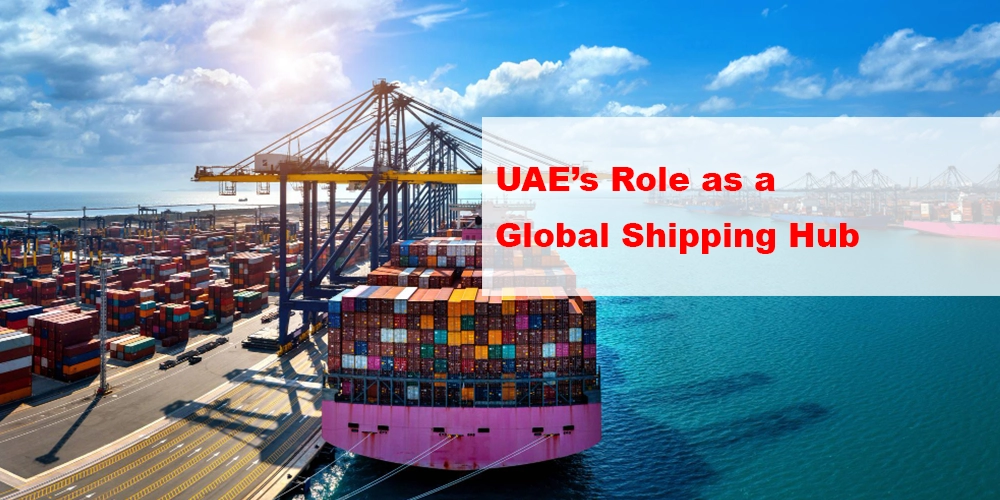International Trade Consultancy In Dubai's Economic Landscape
1. Introduction
The change of Dubai from a regional trading port to a global economic hub can be attributed to foresight, geographic advantage, and an open-market economy. Central to the change is the ecosystem that supports international trade. Probably, and often overlooked, are the international trade consultancies that are key to allowing businesses access to global markets, along with commercial risks and regulatory obligations and shielding businesses from geopolitical and economic risks. As Dubai continues to embed its position under a Dubai Economic Agenda (D33), trade consultancy services will become increasingly significant to the economy.
2. The Making of Dubai’s Trade Ecosystem
The economic success of Dubai is heavily influenced by trade liberalization and infrastructure development. Given its location between the East and the West, in particular, Dubai has a strong trade opening to Asia, Africa, and Europe. The emirate has numerous features, including one of the busiest ports in the world (Jebel Ali), state-of-the-art logistics facilities, and numerous free zones like the Dubai Multi Commodities Centre (DMCC) and Dubai Airport Freezone (DAFZA) putting into place the supporting infrastructure that has made it a thriving international trade destination.
Dubai Customs has reported that the city recorded over AED 2 trillion in non-oil foreign trade value in 2023—a clear demonstration of Dubai’s hub-like position in global supply chains. As Dubai continues to diversify away from hydrocarbons and extend its role in global trade, businesses will be required to manage a wider range of complexities surrounding regulation, finance, and geopolitical variables. In comes the role of international trade consultants.
3. The Strategic Role of Trade Consultants in Market Expansion
International trade consultants provide businesses with a roadmap. They convey an extensive body of knowledge about foreign market economies, regulations, consumer patterns, and trends in trade overall. For businesses in Dubai, particularly SMEs and startups, consultants play a role as agents of global expansion, giving advice on culturally and economically appropriate entry strategies in each target market.
For example, an agritech startup from Dubai contemplating expansion into Southeast Asian markets would not only have advice on tariff barriers to entry, but potentially advice on obtaining halal certification or trade incentives eligible under any Comprehensive Economic Partnership Agreements (CEPAs) entered into by the UAE. This type of advisory assistance opens the door to market entry in an efficient manner, while simultaneously exposing the firm to less operational risk.
4. Handling Regulatory Complexity and Trade Compliance
The emirate of Dubai’s location in global trade lanes exposes it to opportunities but it also means that businesses must deal with multiple regulatory frameworks, from local customs legislation and business consultants approved by the UAE federal government to global obligations under the World Trade Organization (WTO) or through bilateral free trade agreements (FTAs). Trade consultants can help explain this complexity.
They can provide a legal function that covers:
- Making recommendations about tariff classifications and customs valuation
- Ensuring imported documentation is complete to facilitate customs clearance
- Structure operations for the purposes of benefitting from exemptions or concessions in trade agreements
When in a position to consult on compliance issues like customs audits, duty minimisation, or utilizing bonded warehouses or inward processing relief schemes, the consultants can ensure that companies are in a position to legally operate at reduced cost.
5. Using Free Trade Agreements and Trade Facilitation in Strategic Partnerships
The UAE’s formal involvement in trade diplomacy has resulted in FTAs or comprehensive economic partnership agreements with countries such as; India, Indonesia, Georgia, and Turkey. All of these agreements provide for preferential tariffs, simplified processes, and broader market access, however, many businesses either are not aware of how these agreements work, or do not understand how they may be able to take advantage of the agreements.
International trade consultants play a significant interpretative role — determining eligibility criteria, configuring supply chains to meet rules of origin, and preparing committees and consultations, also provide advice on the compliance documentation to claim benefits. As an example, a trader of electronics importing from Dubai exporting to India under CEPA (the India-Dubai free trade agreement scenario) may be given direction from a consulting engagement on product specificity rules and digital certification requirements.
6. Risk Notices and Political Advisory
In a world beset by trade wars, sanctions, and volatile exchange rates, risk management is integral to trade. Consultants can provide geopolitical analysis, sanctions compliance, and payments structure advice as a means of hedging against overall uncertainty.
They assist companies in:
- Evaluating export control and embargo business consultants (for example, U.S. sanctions, OFAC)
- Apparent international arbitration clause and force majeure to cross-border negotiations
- Utilising trade insurance products to mitigate risks of disruption of supply chain or non-payment, by using letters of credit and export credit guarantees
7. Leveraging ESG and Sustainability in Trade Policy
With increasing focus on sustainability, Environmental, Social, and Governance (ESG) metrics are no longer optional in global trade. Now, when importing into areas such as the European Union (EU), there must be adequate controls in place to meet green standards, carbon disclosures, and ethical sourcing obligations.
Sustainable trade consultants are supporting Dubai-based exporters with the following:
- CBAM requirements
- Sustainable sourcing and due diligence
- Green logistics
This work is consistent with Dubai’s goal to be a leader in sustainable trade and innovation.
8. Digitizing the Trade Advisory Practice
Dubai’s vision to become a “Smart City” and its commitment to a digital economy, facilitated the digitization of trade, customs and logistics. Trade consultants have digitized their work to include digital tools such as AI-based analytics, smart contracts via blockchain, and virtual trade venues.
Innovations include:
- AI-sourced predictions of trade data for market entry and demand planning
- Blockchain-generated digital certificates of origin and customs documents
- Virtual trade expos and launches in the metaverse for global buyers
Consultancies are now also digital transformation partners in a borderless trading environment.
The direct impact of Trade Consultancy in supporting Dubai’s economy can be demonstrated through case studies:
9. Case Studies:
SME Growth: A local organic food brand expanded to Europe with the help of the consultancy to understand all the various EU food safety regulations, and eco-label certifications, and all aspects of negotiating with a distributor. Not only did the brand enter the market, it saw a 40% increase in its bottom line within 18 months.
Multinational Improvement: A major global apparel chain with operations in Dubai assisted in resolved customs issues in Jebel Ali with a trade adviser who helped them map out and restructure their shipment documentation and distribution logistics. As overall costs were reduced by 18%, the advisers also supported improvements to their documentation systems of the trusted trader processes, which impressed Dubai Customs.
10. Synergies with Institutions and an Alignment of Policy
With respect to Trade Consultancy activities in Dubai, experience in working with government and quasi-government agency partners has been significant. The Dubai Chamber of Commerce often works in conjunction with the consultancy community on trade reports to host delegations, and to share knowledge to help align the investment policy environment. Likewise, Dubai Customs along with the Authorized Economic Operator (AEO) program, develops validation and oversight along with trade advisers to build efficiencies to support and identify partner trusted trader processes.
The D33 initiative, and the Dubai Global initiative (for example, establishing 50 trade representatives globally) should be viewed as a defined strategy and intelligence exactly where trade consultants could align policies of interest.
11. Difficulties and Ethical Challenges
Although the trade consulting industry is largely positive there are barriers to navigate. The opportunities that are offered by consulting with an unregulated advisor suggest the danger of disseminating misinformation, an over-reliance on smaller firms that direct their compliance solely to outsourcing, and a reduction in the firm’s compliance capacity. Ethical consulting requires that the scope of compliance be transparent, that conflict-of-interest exist, with the requirement of ongoing competency, especially in light of Dubai’s unique geographic position to regional and international political ties.
12. Conclusion
Conversely, as Dubai stakeholders continue to build further legitimacy and esteem as a fulcrum of international trade, international trade consultancies are not peripheral-they have profound positions of influence. The allow businesses and services to integrate globally at an ever-increasing pace that respect and support compliance within the local, federal and global regulation and support firms in their compliance, and ultimately positions them to maximize on regional mediators and digital economy gaps, part of the dollarization process in the changing geopolitical landscape. Their increasing role of a holistic strategic, techno and policy advisor means they will not be taken for granted, as they remain the only way forward to unlock and sustain new markets and continued legitimacy of Dubai as a resilient and responsive global trading city.
13. References
1. Nadine El-Mikawy and Kevin Yeung, ‘Trade Facilitation in the UAE: Public-Private Synergies’ (2022) 56 Middle East Journal of Trade Policy 38
2. Richard Baldwin, The Great Convergence: Information Technology and the New Globalization (Belknap Press 2016)
3. Bernard Hoekman and Ben Shepherd, ‘Services Trade and Global Value Chains: Policy Implications’ (World Bank, 2017) World Bank Working Paper No 8122 https://openknowledge.worldbank.org/handle/10986/27626 accessed 10 June 2025
4. United Nations Conference on Trade and Development (UNCTAD), World Investment Report 2023 (UNCTAD, 2023) https://unctad.org/webflyer/world-investment-report-2023 accessed 10 June 2025
5. UAE Ministry of Economy, Comprehensive Economic Partnership Agreements (CEPA) (UAE MoE, 2024) https://www.moec.gov.ae/en/strategic-affairs/cepa accessed 10 June 2025

Shekhar Mehra is a legal writer and researcher at LEGALLANDS LLP, specializing in corporate business consultant, business structuring, regulatory compliance and post-incorporation governance. He regularly contributes in-depth articles and thought-leadership pieces focusing on entity formation, governance frameworks, cross-border compliance and emerging policy reforms — particularly for India-UAE trade & investment contexts. His work combines technical legal insight with practical business strategy, to guide entrepreneurs, in-house legal teams and advisers through today’s complex regulatory environment.



